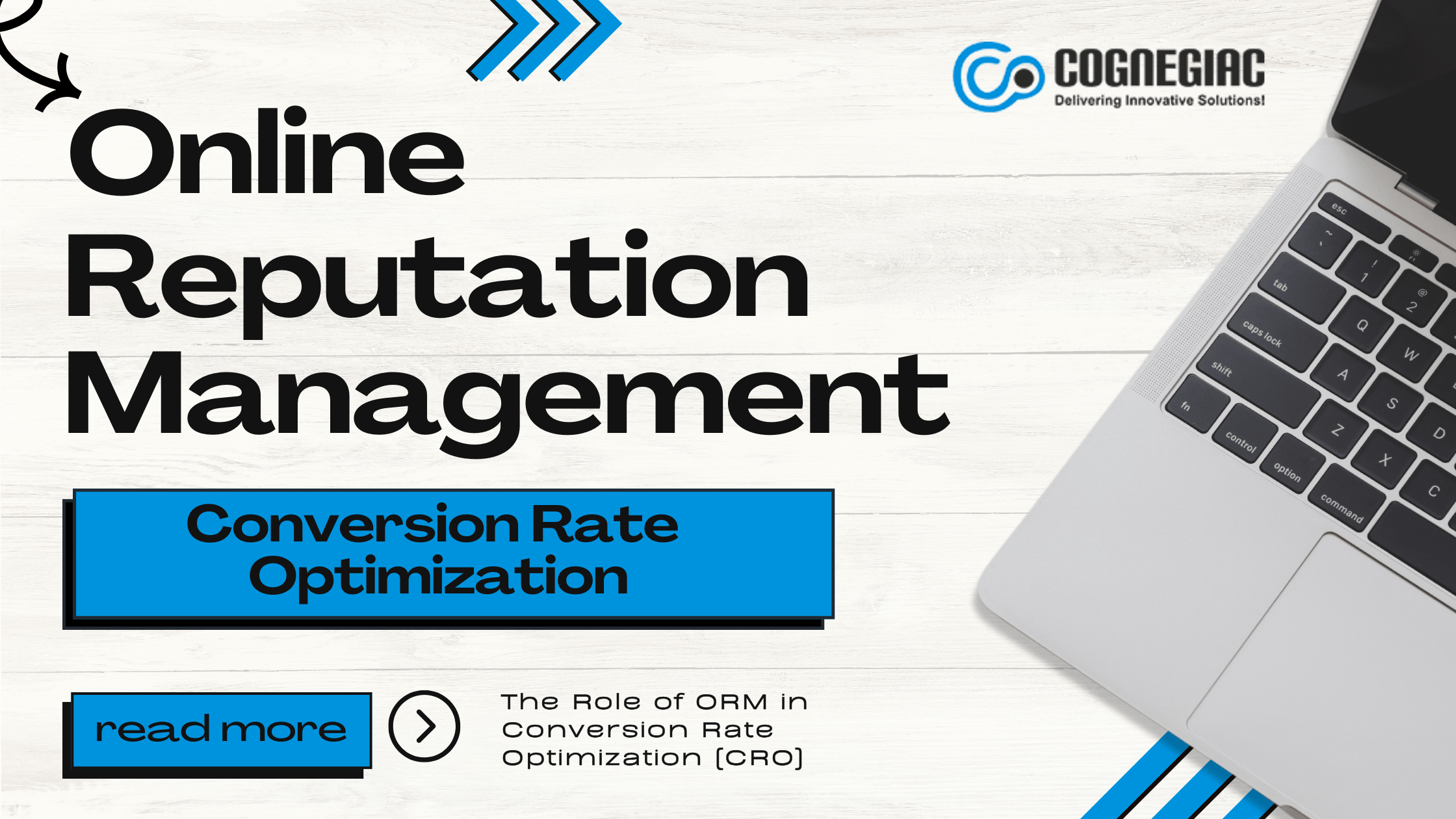
In today’s digital world, online reputation management (ORM) has become an essential component of a successful business strategy. As consumers increasingly rely on online reviews, social media, and search engine results to make purchasing decisions, a brand’s reputation can significantly influence its conversion rate. Effective ORM services in the USA help businesses maintain a positive image, enhance credibility, and ultimately drive higher conversions.
Understanding Online Reputation Management (ORM)
Online Reputation Management (ORM) involves monitoring, addressing, and improving how a business or individual is perceived online. It includes managing online reviews, responding to customer feedback, controlling search engine results, and maintaining a positive brand image on social media platforms.
Key Components of ORM
- Review Management: Encouraging positive reviews and addressing negative ones to build trust.
- Search Engine Optimization (SEO) for Reputation: Ensuring that positive content ranks higher in search engine results.
- Social Media Management: Engaging with customers and addressing concerns proactively.
- Crisis Management: Handling negative publicity effectively to prevent long-term damage.
- Brand Monitoring: Keeping track of online mentions and brand perception.
The Role of ORM in Conversion Rate Optimization (CRO)
Conversion Rate Optimization (CRO) focuses on improving the percentage of website visitors who take desired actions, such as making a purchase, signing up for a newsletter, or requesting a quote. ORM directly impacts CRO by influencing consumer trust, brand perception, and decision-making.
1. Builds Trust and Credibility
Consumers are more likely to convert when they trust a brand. Positive online reviews, high ratings, and a well-maintained reputation establish credibility, making potential customers feel confident in their purchase decisions.
Impact on CRO:
- Businesses with a strong ORM strategy see higher click-through rates (CTR) and lower bounce rates.
- Positive reviews and testimonials increase user confidence, leading to more conversions.
2. Enhances Brand Perception
A positive online reputation creates a strong first impression. When users search for a business online, they rely on search results, reviews, and social media to form an opinion. If the first impression is positive, they are more likely to engage with the brand.
Impact on CRO:
- A well-maintained online reputation reduces hesitation and encourages users to complete transactions.
- Businesses with higher ratings and positive sentiment see an increase in lead generation and sales.
3. Improves Search Engine Rankings
ORM efforts, such as publishing high-quality content, managing reviews, and addressing negative feedback, contribute to SEO. A higher search engine ranking increases website traffic, leading to improved conversion rates.
Impact on CRO:
- More organic traffic means more potential conversions.
- Positive ORM helps ensure that the first page of Google displays favorable content about the brand, influencing customer decisions.
4. Reduces Cart Abandonment
Many customers abandon their carts due to trust issues. Negative reviews, unanswered complaints, and poor online sentiment can create doubts in the minds of potential buyers.
Impact on CRO:
- Addressing customer concerns and showcasing positive experiences can reassure hesitant buyers.
- An excellent reputation reduces drop-offs during the checkout process.
5. Strengthens Social Proof
Social proof, such as customer testimonials, user-generated content, and influencer endorsements, plays a crucial role in purchasing decisions. A strong ORM strategy amplifies positive social proof, encouraging more users to convert.
Impact on CRO:
- Consumers trust recommendations from peers, making them more likely to buy from a reputable brand.
- Social proof enhances engagement and brand loyalty, leading to repeat customers.
Best Practices for Using ORM to Enhance CRO
1. Encourage and Manage Customer Reviews
- Request feedback from satisfied customers.
- Respond professionally to negative reviews and resolve issues promptly.
- Display testimonials and high ratings on the website to build credibility.
2. Optimize Content for SEO and Reputation
- Publish positive press releases, blog posts, and success stories.
- Ensure that high-ranking pages reflect a favorable brand image.
- Use targeted keywords to enhance online visibility.
3. Engage with Customers on Social Media
- Maintain an active and responsive social media presence.
- Address customer queries and complaints quickly.
- Share positive customer experiences and case studies.
4. Monitor and Address Negative Mentions
- Use ORM tools to track brand mentions and reviews.
- Respond to negative feedback professionally and offer solutions.
- Suppress harmful content by promoting positive news and updates.
5. Leverage Influencer and Brand Advocacy
- Collaborate with influencers and brand advocates to enhance credibility.
- Encourage satisfied customers to share their experiences on social media.
- Highlight user-generated content to reinforce authenticity.
Conclusion
Online Reputation Management (ORM) is a powerful tool for enhancing Conversion Rate Optimization (CRO). A strong reputation builds trust, improves brand perception, and influences purchasing decisions, ultimately leading to higher conversion rates. Businesses that invest in ORM services in the USA can stay ahead of the competition, attract more customers, and achieve long-term success. By implementing effective ORM strategies, brands can not only protect their online image but also drive tangible results in the form of increased sales and revenue.
For businesses looking to improve their reputation and conversions, partnering with a professional ORM service provider can be a game-changer. Start managing your online reputation today and watch your conversion rates soar!




